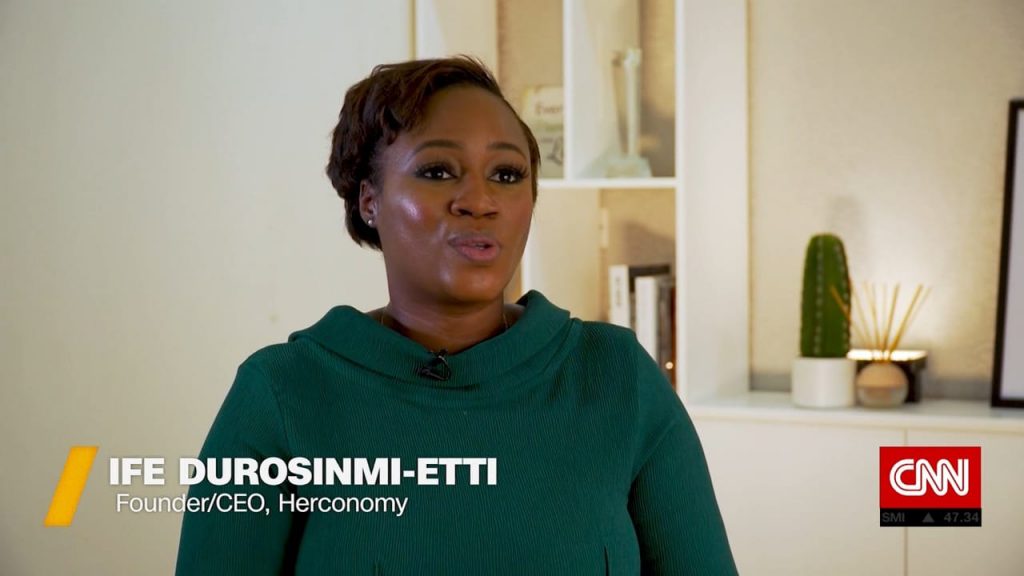News
Marketplace Africa explores women entrepreneurs in the fintech space
AJAGBE ADEYEMI TESLIM
SPONSORED BY: H&H
In the latest edition of Marketplace Africa, CNN’s Eleni Giokos speaks to the Spotify Head of Music for sub-Saharan Africa, Phiona Okumu, about how Spotify is tapping into the African market and CNN’s Zain Asher learns how women are narrowing the female Fintech gap in Africa.
Spotify launched in South Africa in 2018 and in 38 more African countries in 2021. Okumu believes that Spotify is growing alongside its young population and is “resonating with a youthful audience… in a continent that is diverse as Africa. We needed to make sure that the product was custom-made for the region.”
Okumu acknowledges the musical complexities of the continent, and adds that it is important to “know that the world is ready and read indicators like the popularity and growth of different genres from the continent becoming billboard hits in the US, for example.” She continues, “We’ve seen such amazing success from artists like Wizkid, who is now a billboard artist, something that 10 years ago we might have only dreamed of. I think that’s also very much a result of what streaming is doing in the music world as a whole. It’s enabling discovery.”
According to Okumu, “a lot of Africa is unbanked and does not use credit cards”. To best cater to its new market, Spotify leveraged a partnership with M-PESA, a mobile payment service which is local to Kenya. “We are continuing to ensure that we partner with different service providers across the continent to make sure that the lifestyle of the audience that we want to court also makes sense to the product or makes sense with the product.”
The playlist African Heat is an example of a customised playlist that creates a taste of various African nations. This has enabled discovery for all music lovers across the world, “When you see them being reflected in global charts, then you know that it’s not just a story that we are telling ourselves, the success is global, it’s real, it’s exciting.”
In Nigeria, CNN meets Ife Durosinmi-Etti, founder and CEO of Herconomy, who shares the difficulties she faced when raising money for her business.
The World Bank says all-female start-ups received only 3% of the almost 2 billion dollar of investment going to African tech start-ups from 2013 to 2021. “What I’ve noticed in the tech space is that women are over mentored and underfunded. We need to do more to fund more women and ensure that their businesses actually grow from small businesses to big businesses,” says Durosinmi-Etti.
Fara Ashiru Jituboh, founder and CEO of Okra, raised 3.5 million dollars of venture capital (VC) funding in 2021. “Last year was one of the biggest funding years generally across the board. This last year, if you look at venture capital dollars into technology companies were over 5 billion, 2021 getting close to 6 billion,” she says.
Founder of Ingressive Capital, Maya Horgan Famodu believes that with the help of advancing technical contributions, talent, and infrastructure, “We’re seeing the version 4.0 of a typical emerging market technology ecosystem.”
She adds, “I don’t think there is necessarily a shortage of women technical talent across Africa. If you look at Nigeria, the requirement now for 30% plus of board members to be female. There are a ton of women owned funds [in Nigeria]. Almost every prominent VC in Nigeria has a female partner. If you have a bunch of female founded funds that are hanging out in diverse communities, then likely their portfolios will be reflective. We’re continuously seeing that materialise. There is a literal higher return on investment and higher IRR with diverse teams.”
Durosinmi-Etti concludes, “While funding is very difficult for women to get, some women are getting it and it is opening up. Things are changing.”
Horgan Famodu believes “We are all capable and we are all requisite. We’re all required to build a better Africa.”

